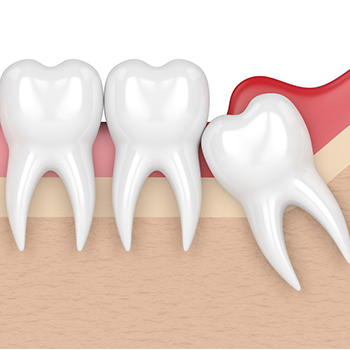Wisdom teeth typically emerge in adolescence or early adulthood, between the ages of 17 and 25. These teeth develop in the last and are located at the back of the mouth. In many individuals, there is often insufficient space in the jaw for wisdom teeth to erupt properly, leading to potential issues such as impaction, infection, and overcrowding of existing teeth. If wisdom teeth become impacted, they can cause pain, swelling, and other dental problems, necessitating their removal.
Wisdom Tooth Removal in Vijayawada , or tooth extraction, is a common dental procedure performed by oral surgeons or dentists. The dentist will make an incision in the gum tissue to expose the tooth and bone, if necessary, and remove the tooth, sometimes in sections to ease extraction. Post-surgery, patients may experience swelling, discomfort, and bleeding, which can be managed with prescribed pain relievers and proper aftercare, including soft foods and oral hygiene practices. It’s essential to follow the dentist's post-operative guidelines to prevent complications like dry socket. Overall, Wisdom Tooth Treatment in Vijayawada is a common preventive measure to maintain oral health and avoid future dental issues.
Signs of wisdom tooth impaction as per Dental clinic in Vijayawada :
- Pain or Discomfort: Persistent pain in the back of the mouth can signal underlying issues.
- Swelling or Inflammation: Noticeable swelling around the gumline may indicate infection or impacted teeth.
- Difficulty Opening Jaw: Limited jaw movement can arise from swollen gums or an infected tooth.
- Food Trapping: Frequent accumulation of food particles between the molars may suggest improper alignment.
- Cavities or Damage: Visible decay or damage on the wisdom tooth itself necessitates removal.
- Crowding

Post care instructions of a wisdom tooth extraction:
- Rest for at least 24 hours post-surgery
- Adhere strictly to your dentist, Dr. Hanisha Adusumilli post-operative care instructions for quick recovery.
- Manage Bleeding: Bite gently on gauze for 30-60 minutes to control bleeding. Change as needed, avoiding excessive spitting.
- Pain Management: Use prescribed pain medications as told by dentist.
- Ice Packs
- Dietary Restrictions: Stick to soft foods and liquids for the first few days. Avoid hot, spicy, and crunchy foods.
- Oral Hygiene: Maintain oral hygiene but avoid brushing teeth directly at the extraction site for a few days.
- Hydration: Stay hydrated but avoid using straws, as suction can dislodge clots.
- Watch for Complications: Monitor for signs of infection, excessive bleeding, or prolonged swelling, and contact your dentist if they arise.
Complications of not removing wisdom tooth in time ?
Failing to remove wisdom teeth in a timely manner can lead to a range of complications. One of the most common issues is impaction, where the tooth becomes trapped beneath the gum line, leading to pain, swelling, and infection. An impacted wisdom tooth can also cause damage to neighboring teeth, resulting in misalignment or decay. Additionally, untreated wisdom teeth may contribute to the development of cysts or tumors, which could necessitate more invasive surgical procedures. Oral health can also deteriorate, as difficult-to-reach wisdom teeth can harbor bacteria, leading to gum disease and cavities. Furthermore, individuals may experience recurring oral pain and discomfort, affecting their ability to eat and speak effectively. In some cases, systemic infections can occur, posing serious health risks. Timely removal of wisdom teeth is essential to prevent these complications and maintain optimal oral health.
FAQ’s [Frequently Asked Questions]
Will the wisdom tooth removal hurt?
Not really since anaesthesia is used and pain killers are given to manage it later on.
How long does the procedure take?
It usually takes about 20 to 40 minutes, depending on the complexity.
How long is the recovery period?
Most initial healing occurs in 3 to 5 days, but complete recovery can take weeks.
When can I return to normal activities?
Generally, you can return to normal activities in 3 to 7 days.
Can wisdom teeth grow back?
No, once removed, they do not regrow.
Is it safe to remove wisdom teeth while pregnant?
It's generally advised to postpone unless infection or severe pain occurs, as it may carry risks.
Can I brush my teeth after the surgery?
Avoid brushing for at least 24 hours; resume gentle brushing after that.